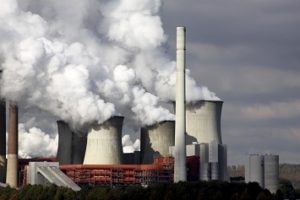Environmental groups, states, health institutions, and even some power companies that support the federal Clean Power Plan (CPP) are discovering how difficult it is to keep the rule alive when the very agency that wrote it is committed to wiping it off the books.

The latest blow to the CPP is an order from the U.S. Court of Appeals for the D.C. Circuit to hold in abeyance the cases against the CPP (consolidated as State of West Virginia v. EPA, No. 15-1363) for at least 60 days. This occurs more than 7 months after the en banc D.C. Circuit listened to a full day of oral arguments in the cases. Perhaps more importantly, the court also ordered the parties to file briefs on whether or not the CPP should simply be remanded to the EPA, which could result in the court not issuing a long-awaited ruling at all. However, should the D.C. Circuit order a remand, the U.S. Supreme Court’s stay on the CPP pending resolution of federal litigation would be lifted, and the rule would take effect until it is rescinded or amended, a process that could take years.
End in Sight?
While these and other developments paint an uncertain picture, opponents of the CPP believe the abeyance order is the death knell for the rule.
“The so-called Clean Power Plan would shut down American power plants and increase energy costs for families,” said Senator John Barrasso (R-WY), chair of the Senate Committee on Environment and Public Works. “This decision gives President Trump’s administration time to reverse this damaging Obama-era regulation.”
“In the wake of the court’s order, we expect the agency to bring the Clean Power Plan within the bounds of the law, which allows for one of two possibilities,” said William Yeatman, an expert in energy policy with the Competitive Enterprise Institute. “Either, one, the rule is nixed because the EPA determines that it is precluded from issuing a climate rule for existing power plants because they are already regulated under the Clean Air Act’s hazardous air pollution program, or, two, the EPA significantly revises the rule to bring it ‘inside the fence line’ of electricity generating units, such that the agency no longer claims the authority to dictate to the states what their energy choices must be. Either way, the outcome will pardon the American economy from the ill-effects of the Clean Power Plan, which would have empowered the EPA to remake the electric industry in furtherance of climate change mitigation.”
Obligation to Regulate
Supporters of the CPP do not view the abeyance order as a death knell for the CPP or, more specifically, any departure from the Supreme Court’s ruling in Massachusetts v. EPA that greenhouse gases (GHGs) are a pollutant that must be regulated under the Clean Air Act.
“Today’s temporary pause in the litigation does not relieve EPA of its legal obligation to limit carbon pollution from its largest source: fossil-fueled power plants,” said Eric Schneiderman, attorney general of New York State. “Nor does it change the reality of the dire harm climate change is causing to communities around New York and across the country.” Schneiderman is among the leaders of a coalition of governments, including 16 states, fighting to retain the CPP as it was written.
Judicial Economy?
In its motion requesting abeyance, the EPA said the delay will provide the Agency the opportunity to fully review the CPP and respond in a manner consistent with President Donald Trump’s March 28, 2017, Executive Order on energy independence, which directed that the Agency review the rule.
“Such abeyance will promote judicial economy by avoiding unnecessary adjudication and will support the integrity of the administrative process,” said the EPA. “Because the Rule is under agency review and may be significantly modified or rescinded through further rulemaking in accordance with the Executive Order, holding this case in abeyance is the most efficient and logical course of action here. Abeyance will further the Court’s interests in avoiding unnecessary adjudication, support the integrity of the administrative process, and ensure due respect for the prerogative of the executive branch to reconsider the policy decisions of a prior Administration.”
Or Waste of Resources?
Those opposing the abeyance told the D.C. Circuit that such an order would waste the considerable efforts expended by litigants to have the court render a decision on the merits of the CPP and the cases against it. Furthermore, they argued that denying the abeyance would in no way prevent the EPA from continuing its review of the CPP and, if it chooses, initiating rulemaking to rescind or revise the rule.
